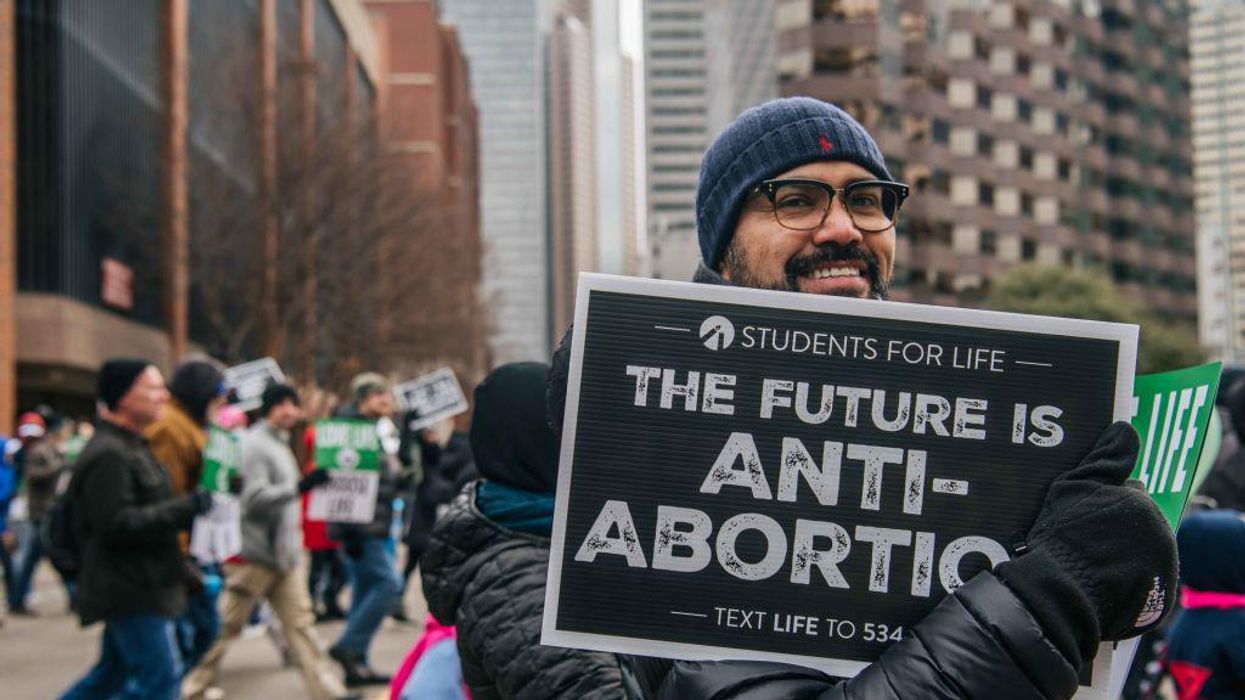
Brandon Bell/Getty Images

The Texas Supreme Court this week delivered a critical blow to abortion providers that sought to block the state's controversial six-week abortion ban, known as the "Heartbeat Act," that prohibits abortion procedures after fetal cardiac activity is detected.
In a unanimous ruling issued Friday, the top state court determined that abortion providers cannot sue state licensing officials in order to challenge the law since those officials do not have the ability to enforce the law, Axios reported. Under the legislation, private civil action is the only enforcement mechanism.
The question over whether state officials could take action against violators of the law had been tossed around the federal court system as part of the abortion providers' federal lawsuit against state licensing officials. After the U.S. Supreme Court transferred the issue to the 5th Circuit Court of Appeals, the 5th Circuit asked the Texas Supreme Court to weigh in.
"We conclude that Texas law does not grant the state-agency executives named as defendants in this case any authority to enforce the Act’s requirements, either directly or indirectly," Justice Jeffrey Boyd wrote delivering the court's opinion.
The ruling effectively ends the abortion providers' months-long federal lawsuit against the pro-life law, leaving it in place.
The bold new law — which infuriated progressive lawmakers and abortion advocates in the state and across the country when it was approved last year — takes a unique approach to defend the lives of unborn babies. It leaves enforcement of the law up to private citizens who are empowered to sue anyone who performs an abortion after roughly six weeks gestation or "aids and abets" it.
Scholars say the unusual provision is what makes the law difficult to challenge. It was designed to circumvent legal precedent surrounding abortion.
Nevertheless, the law has faced significant legal opposition. The abortion providers' challenge over enforcement of the law made it all the way up to the U.S. Supreme Court in December. But justices on the nation's top court dismissed most of the complaints brought by the providers, leaving only a narrow portion of the suit intact that challenged state medical licensing officials.
With the Texas Supreme Court's ruling Friday, even that narrow challenge was stamped out.
"The U.S. Supreme Court left a shred of a case and today the Texas Supreme Court threw out even the crumbs of the case that was left," Julia Kaye, staff attorney with the ACLU Reproductive Freedom Project, lamented, according to the Washington Post.
Kaye went on to acknowledge that with the ruling, the Texas abortion ban "is going to remain in effect for the foreseeable future."
Pro-life advocates, on the other hand, celebrated the ruling.
"This is a big victory for the TX Heartbeat Act," Kimberlyn Schwartz, media director for Texas Right to Life, said in a statement. "We have said from the beginning that abortionists’ lawsuit should be dismissed, and we’re grateful that the law will continue saving thousands of lives."
The abortion ban, one of the strictest in the nation, will now remain in effect as the U.S. Supreme Court weighs the future of abortion in the country, in general. This summer, the court is expected to issue a ruling in Dobbs v. Jackson Women’s Health Organization, a case involving a 15-week abortion ban in Mississippi that has set the court on a collision course with its 1973 landmark decision in Roe v. Wade.
Many onlookers expect that the current conservative majority Supreme Court will either overturn or roll back abortion rights enshrined in Roe. Either would likely trigger a large-scale return of the abortion issue to individual states.
In anticipation of such an outcome, many Republican-controlled states have begun proposing and passing bills similar to the one implemented in Texas.